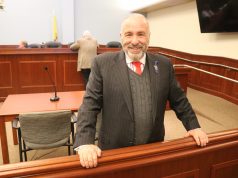Derrick Broadaway DDS is a seasoned industry professional who shares his insights on the groundbreaking venture into AI-Driven personalized oral care, a development that promises to revolutionize treatment plans in dentistry.
From fear-inciting dental drills to ultra-realistic dental implants, dentistry has come a long way since its oh-so-humble beginnings. But it’s far from fully evolved as artificial intelligence (AI) and machine learning (ML) create seismic waves in the field, changing the landscape as many have known it for decades.
Derrick Broadaway explains that ever-advancing AI technology is revolutionizing oral healthcare, increasing the personalization and accuracy of treatment plans, easing diagnoses, and using predictive analytics to prevent diseases. By analyzing patients’ dental histories, lifestyles, X-ray images, and other factors, algorithms craft tailored care plans in a matter of moments.
While it isn’t widespread yet, more dental clinics across the nation will undoubtably begin incorporating artificial intelligence technology into their practices as it becomes more affordable and accessible.
Derrick Broadaway Discusses the Cornerstone of AI in Dentistry
AI algorithms can read, analyze, and process huge amounts of patient data to generate specially curated treatment plans that take into account individuals’ medical histories, treatment preferences, diagnostic images, genetics, and lifestyle factors.
Leveraging this technological advancement to consider people’s plentiful differentiations and predict outcomes gives dentists the ability to tailor interventions to everybody’s unique needs. Such a personalized approach boosts treatment efficacy and patient satisfaction while managing costs and optimizing resources.
In addition, the enhanced accuracy means dentists are less likely to fall prey to common care errors, like drilling over flossing. And when new technologies are needed to satisfy patient needs, AI facilitates a smooth, seamless integration process.
Tailored Care Plans: Just One of Many AI-Provided Impacts on Dentistry
Derrick Broadaway explains that while personalized treatment plans that consider patients’ unique facets are perhaps the most directly impactful effect of AI implementation, it certainly isn’t the only one. Alongside its unmatched accuracy and customizability, the technology has changed image analysis, brought intelligent robotics to clinics, and afforded patients remote monitoring.
Image Analysis and Diagnostics
When combined with machine learning algorithms, artificial intelligence can look at radiographs, 3D images, and intraoral scans, accurately and automatically detecting potentially serious dental conditions like fractures, cavities, and tumors.
Derrick Broadaway DDS says that upon receiving the results, these systems can analyze patient records to corroborate diagnoses. In practice, this can help detect conditions earlier, improving patient outcomes thanks to timely interventions.
According to Dentistry iQ, imaging systems powered by AI can also make custom 3D models of individuals’ teeth and jaws. By automating measurements and recording tooth dimensions, the tech crafts exact replicas of people’s oral portrait. Particularly useful in more intricate treatment plans, these printed models allow dentists to plan complex restorative work before they actually start work, preventing mishaps.
 Remote Monitoring and Virtual Consultations
Remote Monitoring and Virtual Consultations
Otherwise known as tele dentistry, it lets practitioners treat patients virtually through video conferences. Tools such as AI-enabled chatbots ensure patients receive advice, prompt guidance, and monitor ongoing conditions from home.
Derrick Broadaway DDS explains that all patients can benefit from this remote care, however, it appears it’s most helpful for those in rural areas, where dental experts are few and far between. Improving access to healthcare is an active effort in most areas, and AI allows dentists to achieve it.
By using a video editor and MP4 compressor to guarantee high-quality visuals and sounds, dentists can look at patients’ mouths remotely. After viewing, they can diagnose and treat the individual, giving them instructions to do at home.
Derrick Broadaway DDS As for continuous remote monitoring, this is enabled via AI-powered sensors and wearables. Such devices accurately track oral hygiene routines, mouths’ pH levels, and tooth grinding, collecting data in real time and providing personalized recommendations simultaneously.
Intelligent Robotics
Simple and repetitive tasks are frequently being handed to dental robots, freeing up human power for more complicated, intricate procedures. It may be a while before everybody is getting their teeth cleaned and polished by a robot, but it certainly isn’t too from the horizon.
Derrick Broadaway DDS says that interestingly, robotic systems powered by AI are also assisting dentists in complex surgeries, reducing the likelihood of errors and enhancing precision. The industry anticipates this niche in particular will develop dramatically over the next five years or so.
Evidently, AI is having a huge effect on dentistry. Combined with the educated prowess of human practitioners, the technology is improving patient outcomes, decreasing the overall costs of treatments, and boosting accuracy in diagnoses and treatments.








